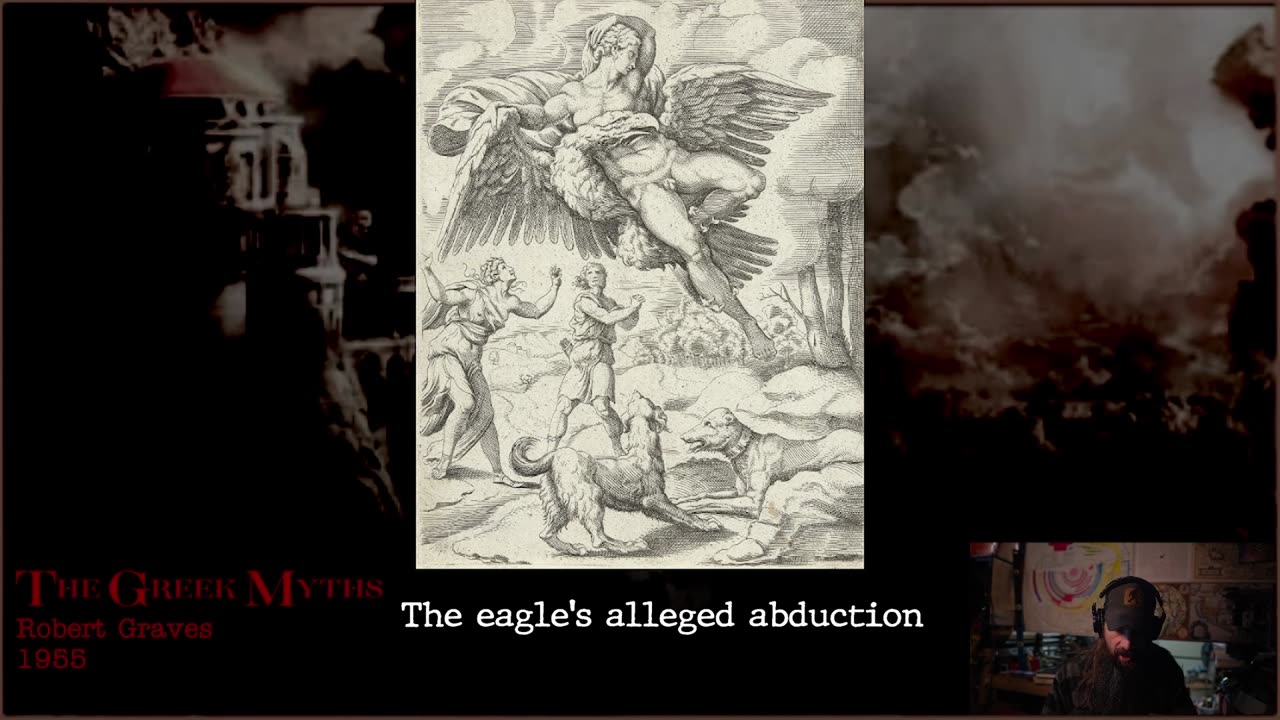Premium Only Content

The Greek Myths - B1 - 29
The Greek Myths - B1 - 29
This video explores the myth of Ganymede, the beautiful youth abducted by Zeus to become the cupbearer of the gods. Key themes include Ganymede's immortality, the divine nature of his abduction, and the cultural significance of his story in Greek and Roman traditions. The narrative discusses various interpretations of Ganymede's role in mythology, his representations in artworks, and the broader implications of his myth on ancient gender dynamics and religious practices.
Key Points:
Ganymede's Abduction
Ganymede, the son of King Tro, was so beautiful that he was chosen by Zeus to be his cupbearer. Zeus, desiring Ganymede as both a servant and a companion, disguises himself and abducts him from the Trojan plains.
Immortality and Compensation
After Ganymede's abduction, Hermes presents King Tro with horses and a golden vine as compensation. He also reassures Tro that Ganymede has become immortal and will not experience old age.
Cultural Misinterpretations
The video discusses how Ganymede's story has been misinterpreted over time, including various depictions of his abduction and rituals associated with kingship in ancient iconography.
Symbolism of the Eagle
Zeus's use of an eagle to carry Ganymede signifies divine power and a common motif of ascension to heaven found in many cultures. Eagles symbolize royalty and divine interest.
Patriarchy and Gender Dynamics
The narrative highlights Ganymede as a symbol of changing gender roles in ancient religions, where male-centric worship displaced earlier matriarchal practices. Philosophers like Plato used Ganymede's story to support contemporary views on male relationships.
Constellation Aquarius and Ancient Deities
Ganymede is associated with the constellation Aquarius, originally linked to another god related to the Nile. His transformation into a major figure in Greek mythology reflects cultural shifts away from earlier traditions.
Nectar and Ambrosia
Zeus's nectar, often described in myth as a divine wine, is actually portrayed as a primitive food enjoyed by gods, which contrasts with the humble diets of mortals.
-
 1:08:47
1:08:47
vivafrei
1 hour agoAnother "Trans" Mass Shooter? Rampage Jackson Keeps Digging? Democrats are Just Awful AND MORE!
3.39K9 -
 1:34:24
1:34:24
Redacted News
2 hours agoLIVE: Minnesota School Shooter’s Shocking Motive Revealed – Plus Trump Targets Soros w AG Ken Paxton
122K109 -
 4:55:15
4:55:15
StoneMountain64
5 hours agoHUNTING FOR THE FIRST WIN BACK ON WARZONE
45.5K2 -
 1:09:06
1:09:06
The Officer Tatum
3 hours agoBREAKING: Shooter IDENTIFIED TR*NS , Cracker Barrel CAVES To Pressure + MORE | EP 162
37K47 -
 53:47
53:47
Matt Kohrs
3 hours agoLIVE! Nvidia Earnings Call || NVDA Stock Reaction
18K1 -
 32:25
32:25
Tudor Dixon
1 hour agoKarol Markowicz on Freedom, Immigration, and Saving the American Dream | The Tudor Dixon Podcast
6.77K -
 2:03:25
2:03:25
The Quartering
5 hours agoFlag Burning, Free Speech, Church Attack & More With Andrew Wilson
203K297 -

The Robert Scott Bell Show
20 hours agoDr. Peter McCullough, Vaccines: Mythology, Ideology, and Reality, Dr. Dan Sullivan, Chiropractic - The RSB Show 8-27-25
27.9K -
 1:21:03
1:21:03
Darkhorse Podcast
5 hours agoFreedom, Tyranny, and Childhood Lost: The 291st Evolutionary Lens w/ Bret Weinstein & Heather Heying
34.2K17 -
 LIVE
LIVE
LFA TV
11 hours agoLFA TV ALL DAY STREAM - WEDNESDAY 8/27/25
1,301 watching